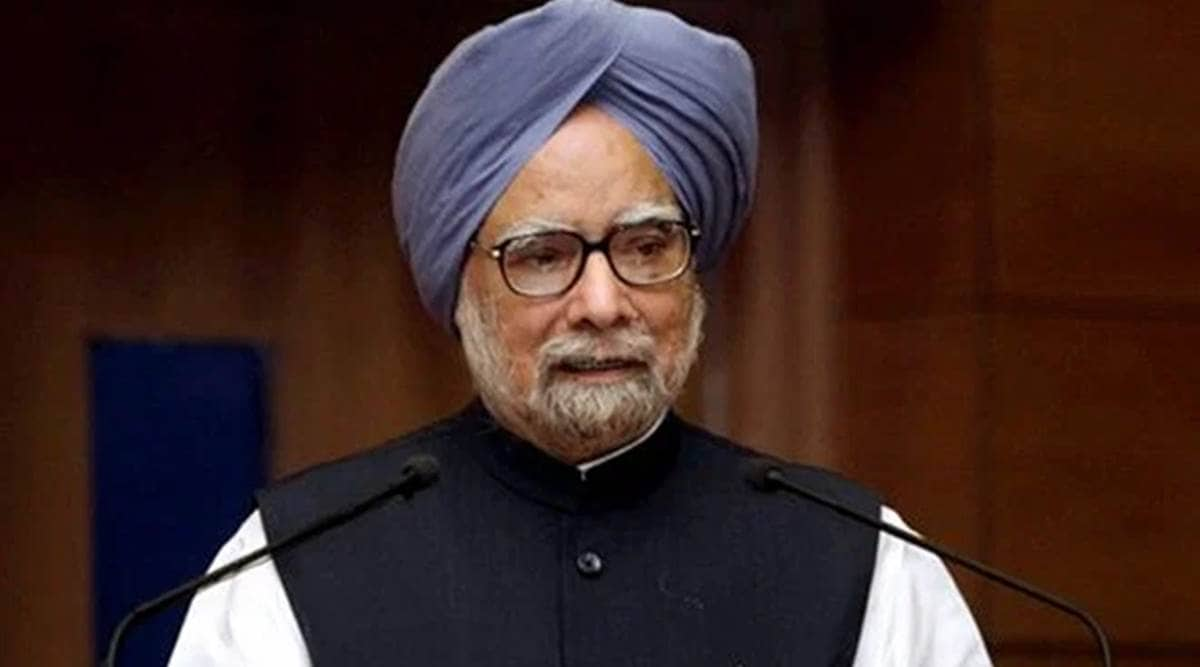 Former Prime Minister Manmohan Singh. (File)
Former Prime Minister Manmohan Singh. (File)The UPA government was “very selective” in allowing projects that impacted the “wilderness or the habitat of wildlife” and had faced criticism from industrialists and others who thought his government was being too “restrictive”, former Prime Minister Manmohan Singh said Monday.
Singh said his government was “conscious” of its duty to “accelerate economic development and raise the standard of living of our people, especially those in poverty” as it was the priority of any government but at the same time was “very selective” in allowing projects that impacted the wilderness or the habitat of wildlife.
“Indeed, we were criticised by industrialists and those who thought we were being too restrictive. But I believe that if a proper balance is not firmly held, the results are deleterious and self-defeating,” he said, presenting the Indira Gandhi Prize for Peace, Disarmament and Development to British naturalist David Attenborough in a virtual function.
Congress president Sonia Gandhi said Attenborough has been “one of Nature’s most staunch conscience keepers”.
In his acceptance speech, Attenborough said the world is heading towards a major crisis, unlike any other that humanity has faced in its history. Arguing that humanity has overrun the planet, the consequences of which for the natural world have been devastating, he said, “We must change our ways and we must do so swiftly and globally. But success will only come if the nations of the world agree to act together, and help one another.”
“This will not be easy. We have to change from being nationalists and become internationalists. And that, for all of us, will involve giving as well as taking. Politicians will only do that if they have the support for doing so from those who put them in power – and who could remove them if they fail to live up to their promises. But electorates will only support such international action if they understand the problems” of environmental degradation and loss of biodiversity which is threatening livelihoods, he added.
Singh described Attenborough a “living legend in the context of the natural world” who had been the human voice of nature for over seven decades and the veracity of his concerns is evident to anyone who looks at the state of the planet today.
“How acute the situation is cannot be clearer than from the pandemic that has gripped the earth, coincidently almost exactly one century after the great influenza epidemic. To some, this is nature’s way of telling humankind to loosen its tightening grip on the resources of the earth, to be less exploitative, to respect the needs of the natural world, especially the animal kingdom, more and slow down the pace of environmental destruction,” Singh said.
Singh said finding a balance between development and ecology had been a dilemma.
“Millions of us live in abject poverty. Millions around the world do not have access to enough food, clean water and surroundings, a minimum acceptable standard of living. In the name of development, nature bears the brunt, with its long-term crippling effects on that very quality of life we are trying to improve. But like Sir David, I believe that it is possible for us to respect boundaries, to be aware always of the costs of economic development, and to refrain from excesses, from ignorant or wilful actions that ultimately rebound on us,” Singh added.